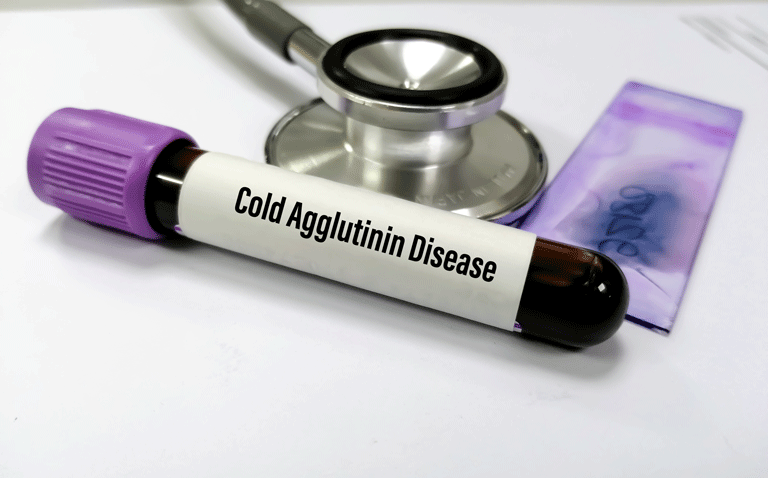Sutimlimab (brand name Enjaymo) has been granted approval by the EMA for haemolytic anaemia in adult patients with cold agglutinin disease
According to the manufacturer, Sanofi, sutimlimab (Enjaymo) has been approved for the management of adult patients who have haemolytic anaemia with cold agglutinin disease.
Cold agglutinin disease (CAD) is a rare, autoimmune disorder and which is characterised by premature haemolysis (i.e., destruction of red blood cells). The termed “cold” refers to the fact that the autoantibodies (termed ‘cold agglutinins’) cause haemolysis at cold temperatures, usually 3 to 4oC. Haemolytic anaemias are due to the production of autoantibodies (IgM) directed against surface antigens on red blood cells.
This IgM-antigen complex is a potent trigger of the classic complement pathway, binds to the C1 complement complex and which in turn, activates C1s, a C1 complex serine protease. CAD affects about one person per million every year, and mostly develops between the ages of 40 and 80 years. The condition impacts the lives of an estimated 12,000 people in the US, Europe and Japan and is associated with profound fatigue and increased risk of thromboembolic events and mortality.
Prior to the introduction of sutimlimab, there have been no effective treatments for CAD and supportive therapy such as cold avoidance has been of limited value although there has been some benefit from rituximab. Sutimlimab is a first-in-class, humanised monoclonal antibody designed to target and block C1s and in doing so, inhibits the activation of the complement cascade in the immune system and C1-activated haemolysis.
Sutimlimab clinical efficacy
Two clinical trials have provided the evidence to support the EMA approval of sutimlimab. The first trial, CADENZA, was a 26-week randomised, placebo-controlled phase 3 study, to assess safety and efficacy of the drug in patients with CAD and without a recent (i.e., within 6 months prior to enrolment) transfusion history. Enrolled participants had a haemoglobin (Hb) level less than 10.0 g/dL and were randomised 1:1 to sutimlimab (6.5 g if body weight was <75 kg; 7.5 g if body weight was ≥75 kg) or placebo and which was administered by IV infusion over 60 minutes on day 0, day 7, and every 14 days thereafter through week 25.
The primary endpoint was a composite of Hb increase from baseline of ≥1.5 g/dL at the treatment assessment time-point, absence of blood transfusions from week 5 to week 26, and avoidance of protocol-prohibited CAD medications from week 5 to week 26. Patients receiving sutimlimab had significantly greater odds of achieving the composite primary endpoint than placebo (odds ratio, OR = 15.9, 95% CI 2.9 – 88.0, p < 0.01).
In the second trial, CARDINAL, which was also for 26 weeks, the primary end point was a normalisation of the haemoglobin level to 12 g/dL or an increase in Hb of 2 g/dL or more from baseline and no red-cell transfusion or use of medications prohibited by the protocol. A total of 13 patients (54%) achieved the primary endpoint.
Enjaymo received a marketing authorisation valid throughout the EU on 15 November 2022 and this follows an FDA approval in February 2022.










